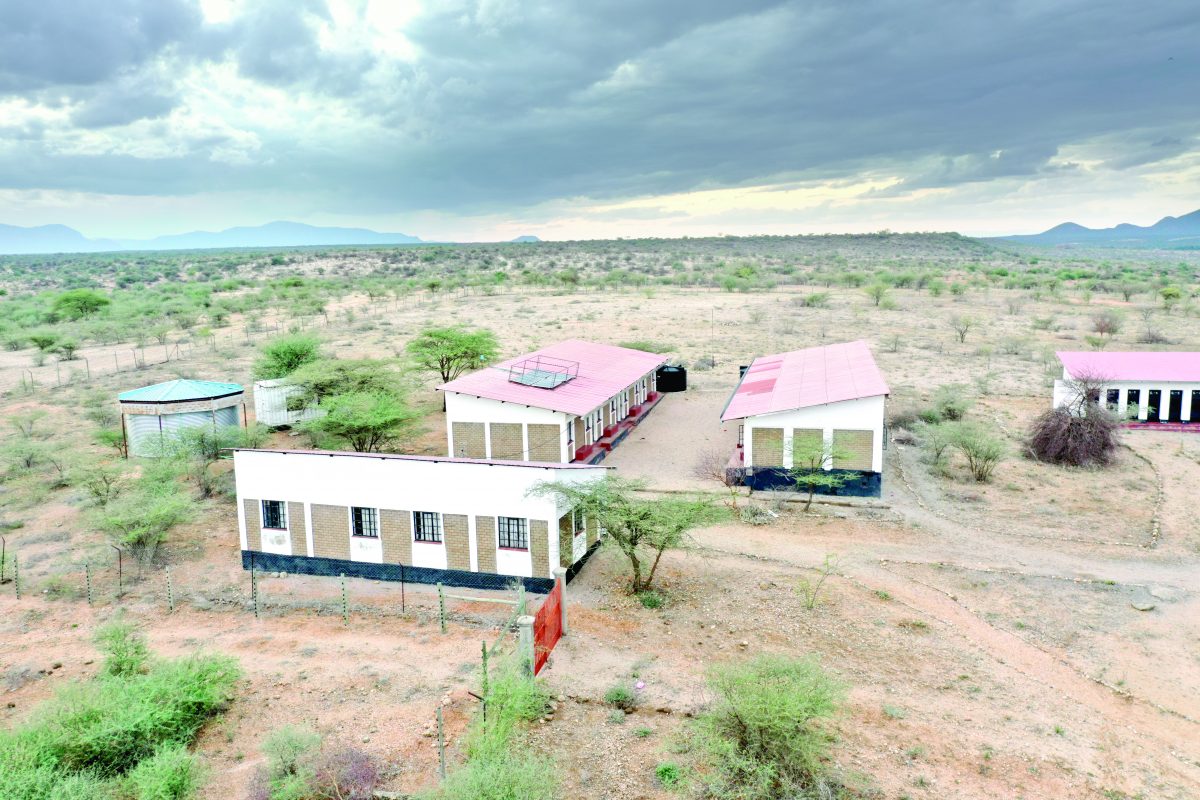Boarding school boosts learning in bandit heartland
By Shukri Wachu, January 9, 2023Nestled at the heart of Nasuluu Conservancy in Ngaremara area, Isiolo County, is Samburu Community School. The learning institution has weathered the storm of multiple threats of banditry that have threatened this area for decades amid the scramble for limited resources.
As we traversed the rocky terrain on our way to the school, we are informed a contingent of police officers had earlier in the day engaged suspected bandits in a gun battle as they attempted to flee with stolen livestock.
Survival here is literally for the fittest. Learning institutions in this area are scarce. The nomadic lifestyle of residents, majority of whom are pastoralists has seen children receive basic education courtesy of mobile schools, adopting the concept that learning can happen anywhere and anytime regardless of prevailing challenges.
Quality of education
As noble as the notion is, children in this area have been deprived of the opportunity to receive quality education while progressing through the various grades. In fact, many have all together been forced to drop out of school in to accompany their parents across county lines in search of water and pasture for their livestock.
The prevailing drought, which is the worst the country has witnessed in 40 years, has exacerbated the situation with hundreds of learners dropping out of school. The humanitarian crisis has seen thousands of children left malnourished, and with their livelihoods now under threat, the search for water and pasture for their livestock has been seen as a prime reason for them to skip school, to date.
“Throughout the drought season I had to move with my child together with all of our livestock, because if I was not at home, no one else could protect him,” said Loibuk Lengara, a parent. Lengara is separated from his son every three months, it’s a situation of which he is not proud of, however, it was the tough choice he had to make in order to have his child remain in school and receive a decent education Samburu Community School recently set up a boarding facility at its institution allowing learners to stay in school for the entirety of a school term.
Parents, who are often hundreds of kilometres away in search of pasture and water their livestock are then able to see their children as they return. “Our children used to suffer a lot when they accompanied us to graze our livestock for a long time.
Even though we did not want to do it, we had no option. Now, I am happy when my child tells me that he is doing well in school,” he said. The school’s headmaster Waqo Liban said the school, which was started in 1999, initially as a private institution is now a public school with at least 50 learners.
As low as the number appears, he says that it is quite impressive considering that the school has barely survived the low admission rate in the past.
“The boarding facility has really resuscitated this school because parents who were in fear of being separated from their children can now rest easy knowing their children have a roof over their head, food and receive quality education without the concerns of constant interruptions of learning schedules,” said Liban.
At least 40 learners are boarders while the rest are day scholars. Saadia Mohammed, the chairperson of the Nasuluu Conservancy said that Sh36 million shillings allocated to the conservancy from the sale of carbon credits, in a project facilitated by the Northern Rangelands Trust (NRT) enabled them to set aside funds for the construction of dormitories for the school.
A carbon credit is a kind of permit that represents one tonne of carbon dioxide removed from the atmosphere.
Feeding programme
The credits are purchased mostly by multiglobal companies seeking to offset their footprints as they contribute to huge amounts of greenhouse gases emissions into the atmosphere.
“The biggest problem parents told us was that they had no option but to move with their children during the drought season now after the dormitories were constructed they can rest easy. They school has since purchased 38 beds and beddings for their learners,” said Mohammed.
The school, which has capacity for leaners up to Standard Six hopes to build on its infrastructure in the coming year further expanding its capacity. Other Schools under the Nasuluu conservancies have also benefited from the carbon project funds with a total of 780 children receiving bursary ranging from primary schools to tertiary institutions.
The programme is expected to continue next year. Water has also been supplied to schools to compliment a feeding programme also credited for the increasing enrolment across schools in the nomadic community.
In a move geared towards heightening security, additional funds from the project have also been used to construct roads and set up health facilities which were no-existent in the recent past.
